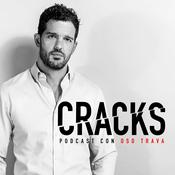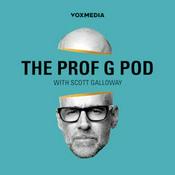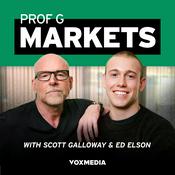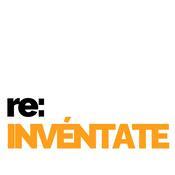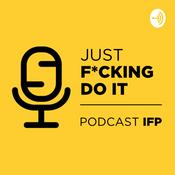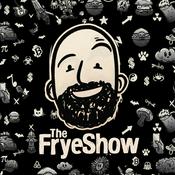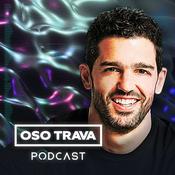45 episodios

From Baseball to Business with Alex Rodriguez and Matt Abrahams
26/3/2025 | 39 min
In this episode of the 'Pfeffer on Power' podcast, host Jeffrey Pfeffer, a professor at Stanford University's Graduate School of Business, is joined by Alex Rodriguez, CEO and Chairman of investment firm Arod Corp, and is known as one of the greatest baseball players of all time, and Matt Abrahams, of the Think Fast Talk Smart podcast to co-host this interview. Alex discusses his transition to business and teaching at Stanford. Rodriguez, who co-teaches a class on Strategic Pivoting with Professor Allison Kluger, shares insights into their teaching framework and what he’s learned through teaching. Alex also emphasizes the importance of self-awareness, resilience, and preparation in both his athletic and business endeavors. Alex also touches on handling setbacks, maintaining authenticity, and the value of humility and gratitude in personal development. Alex also shares what he’s learned about effective communication and team-building, and how it can help shape young leaders and athletes.Pfeffer on Power is produced by University FM.Episode Quotes:Finding resilience in the face of setbacks23:07: [Jeffrey Pfeffer] So, what advice, in coming back from setbacks—which is, I think, amazing—how did you find the inner resilience to do this?23:29: [Alex Rodriguez] This is tough. I mean, everybody handles setbacks their own separate way. I don't care who you are. I mean, I don't care how perfect you are. Name the best CEO—he or she—they've had setbacks, I guarantee it. So, again, I think this is where baseball has really helped me because baseball is the epitome of setbacks. So, I think having the resilience, the confidence, the perseverance from inside to keep trying. I mean, I remember in my darkest hour, I would send 10 emails out—one or two responded—and it was heartbreaking. And part of it was 'cause I was a pariah, and people don't wanna be around me. And Allison works really, really hard with the administration, like, you know, vouching for me. And it's something that I'll never forget. I mean, here I am, in my darkest hour, trying to fight back. And Allison, out of all people—they're probably saying, "There are 750 major league baseball players. This is the one? You got the guy that got suspended for all these years?" And she's like, "Yeah, he's actually a nice guy," and this and that. It's like, "Ah, I'm not sure if I'm buying it." But, I mean, here we are seven years later, and I couldn't be more proud of the partnership.How Alex shapes his communication style with his skills29:38: I think my style of communication is a blend between sports and business, and a little bit of entertainment and levity. I always think about, what is the number one or two things that I'm trying to deliver, and then I'm trying to go—every good story has a good headline, has a beginning, middle, and end. And then maybe go back and repeat my headline, and if I can say more with less words, the better.What makes a great communicator28:28: Part of being a great communicator is sticking to your circle of competence—speak with passion, but about something where you have real knowledge, where you have something to actually add.Show Links:Alex Rodriguez | LinkedInStrategic Pivoting for your Next ChapterMattAbrahams.comThink Fast, Talk Smart Podcast

The Power of Roles and Impactful Career Moves with Sarah Friar
23/10/2024 | 27 min
In this episode of the 'Pfeffer on Power' podcast, host Jeffrey Pfeffer, a professor at Stanford University's Graduate School of Business, is joined by Sarah Friar, CFO of OpenAI and former CEO of Nextdoor.Sarah shares her impressive career journey from engineering in Northern Ireland, to McKinsey, Goldman Sachs, and various leadership roles, notably CEO of Nextdoor and CFO at OpenAI.Sarah offers insights into switching roles within the C-Suite, the challenges women face in tech, and the importance of networking, curiosity, and owning one's power. She discusses her transition back to a CFO role, her views on organizational culture, and practical advice for building effective teams. Pfeffer on Power is produced by University FM.Show Links:LinkedIn ProfileSocial Profile on XLadies Who Launch ProfileEpisode Quotes:The power of curiosity and connections in tech06:19: So I went to this conference. It was two days back to back, and I came back to work, and the VP said, “Where have you been?” Like, we were a bit worried about you. And I was like, “Oh, I was at this conference.” And I walked around this conference, and it was super nerdy. Like, you know, it's the nerds of the nerds. But I was there with my Goldman Sachs business card, and I would just stop at every booth and talk about what someone's technology was and who they were. And that has paid dividends so long in my career. Number one, it got me into the one space that wasn't cracking when the bubble really burst bad. It got me a pathway over into equity research, which actually became the much longer part of my Goldman career. These people that I met at that stage, many of them were young engineers, have become very senior in the technology industry over time. And it was just such a good learning moment for me. Not just that network is important, but curiosity is important. The people who don't look like you or seem like you can actually become incredibly important, interesting, and useful in your career path.How is Sarah aligning impact with opportunity?14:32: First and foremost, I think it's really about aligning where you can have the most impact, right? The whole, if you're going to change the world, start by giving something big a push. To me, that meant OAI or OpenAI right now at this moment in time. I think it is in the crucible of how much AI is going to change the world. And in particular, the mission statement of OpenAI around building technology that will benefit all of humanity was incredibly important to me. Like, we're not just advancing AI, we're actually shaping the future of how society will interact with intelligence itself. And so there's not many places in the world, it might be an N of 1 where I think you can go do that. So, you have to sometimes just recognize that. The role doesn't matter, the title doesn't matter, because the role itself puts you right in that moment. Sarah's perspective on aligning personal impact with broader change03:23: I always want to put myself where I feel like I can have maximum impact, but importantly, the thing I'm impacting will have maximum impact. There's a quote that's always stuck with me: "If you want to cause change in the world, give something big a push." And so I often try to put myself in that place.

Power Moves in FinTech with James da Costa
09/10/2024 | 20 min
In this episode of the 'Pfeffer on Power' podcast, host Jeffrey Pfeffer, a professor at Stanford University's Graduate School of Business, is joined by James da Costa, co-founder of Fingo Africa, and also author of the book Fintech Wars: Tech Titans, Complex Crypto and the Future of Money. James relays his journey growing up in Sheffield, England, and studying economics. From working at McKinsey, to founding a digital banking startup in Kenya and finally joining Andreessen Horowitz as a partner. James emphasizes the importance of boldness, continual learning, reaching out to influential figures, and the significance of generosity in networking. His story is an inspiring testament to young professionals and entrepreneurs.Pfeffer on Power is produced by University FM.Episode Quotes:Lessons from FinTech wars10:31: [Jeffrey Pfeffer] So what did you learn from your research on FinTech wars? And then I'm going to ask you, what did you learn from starting the bank?10:56:[James da Costa] I think one of the most interesting things that I saw is, number one: very often, I think the very best founders are at their best in crisis. They love it when they're thrown the most difficult challenge. I came back from David [Vélez] from Nubank again. He's at his best when the central bank is about to tell him that he's going to get shut down or that he's running out of money because he's then able to galvanize himself and every single person around him to take on that challenge. Reid Huffman compares it to great startup operators being like doctors or emergency care workers. They're used to being in these high-stress environments. And so it was amazing to see how calm and how articulate many of these people were faced with. They respond with massive action, but they often break up the stimulus to the response.How James landed a partnership at a prestigious VC firm straight out of business school05:07: For me, in my career, I've always followed my energy and interests. And so, on the one hand, that's meant that I've had a career that involves supporting corporates build startups in the UK and abroad. It then kind of jumps to building a digital bank myself in East Africa. And now I'm over here in the Bay Area. And so, at first look, you might kind of not see these things. But over time, I built a real knowledge and excitement for a particular industry, which was FinTech and financial services, and had the chance to just meet many, many entrepreneurs in that space and learn a lot about the space. And I think that, combined with actually being an entrepreneur myself and then, at Stanford, spending a lot of time convening other entrepreneurs around Stanford, inviting successful entrepreneurs to come back and talk to people, it meant that I was sort of in the right place at the right time, as they were looking for a new investing partner to join that team.Show Links:Fintech Wars: Tech Titans, Complex Crypto and the Future of MoneyLinkedIn ProfileSocial Profile on X

Breaking Through Stereotypes and Building Success with Christine Hung
25/9/2024 | 22 min
In this episode of the 'Pfeffer on Power' podcast, host Jeffrey Pfeffer, a professor at Stanford University's Graduate School of Business, is joined by Christine Hung, VP, Head of Client Solutions - Real-world Evidence.Christine shares her experiences as an Asian immigrant from Taiwan with an exemplary career in data science and analytics. Christine’s journey includes overcoming job discrimination and still coming out on top at prestigious companies like Apple, the New York Times, and Spotify, as well as her current role at Flatiron Health. Jeffrey and Christine discuss the importance of visibility, networking, asking for what you want, and overcoming self-doubt. This episode provides valuable insights not just for Asian Americans or immigrants, but for anyone facing similar challenges in the workplace.Pfeffer on Power is produced by University FM.Episode Quotes:The advice that empowered Christine to lead with confidence08:36: So instead of waiting to see what this person was going to do, at your encouragement, Jeff, I went to my boss, or our common boss, and said, "Hey, this just happened; it was out of the blue, but here's why I think I should continue to lead this department." My boss was very receptive, and the whole shenanigan just went away. What you did for me there, Jeff, is remind me of the value that I was bringing to the table as a leader and really pushed me to defend what I have built and what I deserve. [09:23] And with that, Jeff, I am forever grateful. And every time I run into situations like this—[09:42]I always ask myself, "What would Jeff advise me to do?" And the answer is always very obvious.How overcoming fear of rejection helped Christine get to where she is today19:50: I think from my experience, the hardest part was getting out of my head, right? 'Cause I think we're all just afraid of rejection, right? And I remember the night before I was going to ask Carolyn [CEO of Flatiron Health] for this opportunity, I was role-playing with my husband, right? And I was like, "Oh my God, what is this going to do?" And basically, he said to me, "Christine, what's the worst thing that's going to happen? The worst thing that's going to happen is that she says no, and you go back to your current job." I think this is something that really took me a long time to learn. I think even at this stage, 20 years out of college, I still need to catch myself when I do that. And that's why I think having taken your lesson, or having your book, your podcast, has been such a great reminder of what I need to do to really achieve my goalsSuccess requires more than just performance13:30: From my experience, performance is table stakes. You need to do so much more than just performing to be successful. You need to have the right boss. You need to be hired at the right time. You need to make sure that the right people with the right power are aware of your impact. And you need to have allies and sponsors in the organization. You also need to be in the right place at the right time in order to progress.Show Links:Christine’s LinkedIn ProfileFlatiron.com

Scaling AI Startups and the Power of Networking with Omar Shaya
11/9/2024 | 26 min
In this episode of the 'Pfeffer on Power' podcast, host Jeffrey Pfeffer, a professor at Stanford University's Graduate School of Business, is joined by Omar Shaya, the founder of MultiOn, an AI company that develops autonomous agents. Omar shares his inspiring journey from growing up in Syria and studying computer science in Germany to working at top tech companies, Microsoft and Meta. He delves into the philosophy and goals behind his startup, which aims to democratize access to personal AI assistants. Additionally, Omar discusses the importance of building a brand, forming strategic relationships, and acting with confidence. Practicing these rules of power helped Omar have successful pitches, secure investments, and build his company to where it is today.He reflects on valuable lessons learned from Professor Pfeffer’s class, such as networking relentlessly, bringing energy to every room, and questioning conventional wisdom. Omar shares how some pivotal choices in preparing for a meeting, such as searching for commonalities and having a working product to demonstrate, open doors to conversations with pivotal people. This episode is full of power-based tips that can be incorporated into the branding and networking habits of any listener. Pfeffer on Power is produced by University FM.Episode Quotes:Democratization through AI03:48: One of the things that I noticed are still exclusive is having access to a personal assistant or to an executive assistant, someone, or something that you can delegate tasks to, tasks that you do not want to do but you have to do so that you can stay focused on the things that you actually want to do. And so when I looked at that, I noticed that this is very limited to people who can afford it, or wealthy, or executive. But the rest of the population did not have access to this. And I thought AI could be the democratizing factor here, where you could give every single person on Earth an assistant that can help them be more productive that can let them delegate tasks that they do not want to do but yet have to do so that they can stay focused on the things they care about most. So that was the motivation to start this company.On acting with power and confidence16:42: [Jeffrey] One of the things that struck me is that you showed up with confidence and with power. You act and speak with power. Can you talk a little bit about that? Cause I suspect, I mean, you're not talking in your native language, which was, I mean, you're from Syria, and then you lived in Germany, but you show up with an enormous amount of confidence and assurance. 17:00: [Omar Shaya] This is also something I learned from your class, doubling down on this whole concept of acting with power. And the way I see it, it's not about me acting with power for the sake of myself only; it is a service to the audience. If I speak with confidence, if they can hear me well, if they can follow the ideas I'm talking about, if they can understand what I'm saying, I see that as my responsibility towards the audience, and not only about me asserting a certain power or something like that. And so that was also the framing of what it means to show up with power or acting with power to me.Building strong connections through networking16:01: Networking, to me, is about building relationships, and that's how you start getting energy from networking, versus seeing it just as a transactional act, but being curious about the other person, learning about them, seeing how you can help each other, and trying to build energy. Some sort of relationship, whether a friendship, a business relationship, or just a human connection, I think that's how you turn networking from something you don't like into something you might enjoy and get energy from.Show L inks:OmarShaya.com MultiOn.aiOmar Shaya’s LinkedIn
Más podcasts de Economía y empresa
Podcasts a la moda de Economía y empresa
Acerca de Pfeffer on Power
Escucha Pfeffer on Power, Bloomberg Daybreak América Latina y muchos más podcasts de todo el mundo con la aplicación de radio.net

Descarga la app gratuita: radio.net
- Añadir radios y podcasts a favoritos
- Transmisión por Wi-Fi y Bluetooth
- Carplay & Android Auto compatible
- Muchas otras funciones de la app
Descarga la app gratuita: radio.net
- Añadir radios y podcasts a favoritos
- Transmisión por Wi-Fi y Bluetooth
- Carplay & Android Auto compatible
- Muchas otras funciones de la app


Pfeffer on Power
Descarga la app,
Escucha.




